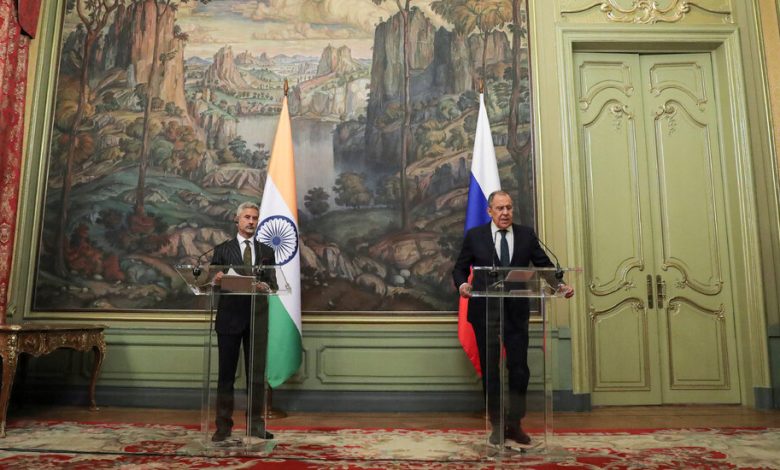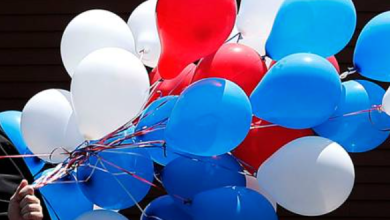Indian Envoy Hails Relationship With Russia, Bypassing Western Pressure

India’s foreign minister met with his Russian counterpart in Moscow on Wednesday, as part of a diplomatic visit highlighting the two countries’ close economic ties despite mounting international pressure to isolate Russia over its war in Ukraine.
From the start of the Ukraine war in 2022, India has taken a neutral stance on the conflict, citing its longtime ties with Russia and insisting on its right to navigate an increasingly multipolar world its own way. Russia has long been the most important military supplier for India, and as international sanctions began constricting Russian oil sales, India rapidly expanded its purchases to become one of the chief buyers of discounted Russian petroleum.
Russia’s foreign minister, Sergei V. Lavrov, said on Wednesday that his country’s relationship with India goes beyond bilateral ties. The two countries are interested in “building an international political and economic system that would be open and fair for everyone,” he said in televised remarks ahead of the meeting.
India’s foreign minister, Subrahmanyam Jaishankar, said that he expected to discuss “the state of multilateralism and the building of a multipolar world order” with his Russian counterpart.
“We will focus on bilateral cooperation in different spheres, adjusting it to changing circumstances and demands,” Mr. Jaishankar said, according to a Russian video broadcast. “We will discuss the international strategic situation, conflicts and tensions where they are.”
Despite the Biden administration’s efforts to make supporting Russia costly, American officials have avoided open criticism of India. Instead, President Biden and others have courted Prime Minister Narendra Modi, seeing India as a potential ally to counter China’s rising economic and military influence. That courtship has continued even after American law enforcement officials accused Indian officials in November of plotting the assassination of an American Sikh activist in the United States.
Mr. Jaishankar’s meeting with Mr. Lavrov on Wednesday comes halfway through a five-day visit in Russia that is expected to cover many facets of the two countries’ relationship, including cooperation on nuclear power projects, trade, civil aviation and defense.
A career diplomat whose book about how India must carefully chart a multilateral diplomatic path is seen as a definitive take on the country’s foreign policy under Mr. Modi, he has portrayed the close relationship between India and Russia as one of the few constants in a rapidly changing world.
“Typically, defense, nuclear and space are collaborations you only do with countries with whom you have a high degree of trust,” Mr. Jaishankar told members of the Indian diaspora in Moscow on Tuesday.
But the relationship shows signs of strain. Indian officials are increasingly worried that Russia’s pariah status will drive Moscow ever closer to China. On another potential competitive front, all three countries are more forcefully portraying themselves as providing leadership and a model for developing nations around the world.
In a reflection of how India is trying to walk the line between Western pressure and its relationship with Russia, this is the second year in a row that Mr. Modi has skipped his traditional in-person summit meeting with Russia’s leader, Vladimir V. Putin.
Happymon Jacob, who teaches Indian foreign policy at Jawaharlal Nehru University in New Delhi, said that apart from India’s increased purchases of Russian oil, the relationship has been less close since the Ukraine invasion.
Still, he said, India will remain reliant on Russia to some degree, particularly in the energy and defense sectors.
“Russia is the only country that has provided India with nuclear reactors — notwithstanding the fact that India signed a nuclear deal in 2008 with the United States,” he said.
During Mr. Jaishankar’s visit on Tuesday, India and Russia agreed to the construction of future power-generating units of the Kudankulam nuclear power plant in southern India, which is being built with assistance from Russia.
Ivan Nechepurenko contributed reporting.





